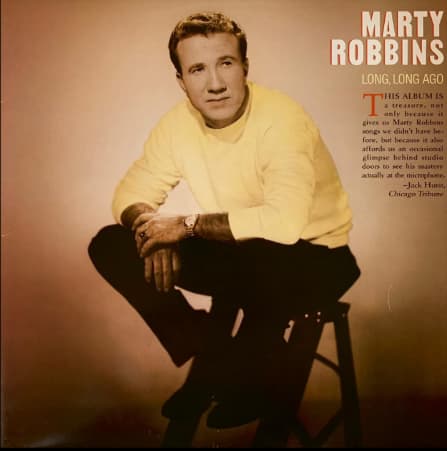
Marty Robbins – “I Couldn’t Keep from Crying”: The Teardrop Ballad That Validated a New Star
Following the groundbreaking success of “I’ll Go on Alone,” a demanding public was eager to see if Marty Robbins was a one-hit wonder or the genuine article. With the release of his next single, “I Couldn’t Keep from Crying,” in February 1953, any lingering doubts were swept away by a wave of pure, unfiltered heartbreak. This track was more than just a follow-up; it confirmed Robbins’ mastery of the mournful ballad, a style he would perfect throughout the decade, earning him the early affection of fans who appreciated an artist unafraid to expose raw emotion.
Just like his debut hit, “I Couldn’t Keep from Crying” was self-penned by Marty Robbins—a testament to his innate ability to craft compelling narratives of common human experience, particularly the sting of betrayal and loss. It quickly ascended the charts, peaking at Number 5 on the US Billboard Country chart in 1953. This Top 5 success solidified his place in the Nashville landscape barely a year after his first major release, paving the way for his official induction into the Grand Ole Opry in January of that year.
The emotional core of the song is devastatingly simple: the moment of seeing a former love with a new suitor. The lyrics capture that universal agony of witnessing a person you cherished offering the same intimacy and devotion—the same tender songs and stolen kisses—to someone else. The line, “I stood and watched him steal a kiss / From two lips I know I’ll miss / And I couldn’t keep from crying,” is a masterful exercise in restraint. It doesn’t detail a furious confrontation or a dramatic outburst; it describes an unavoidable, quiet breakdown, the tears coming simply because they must. It speaks to the dignity of the heartbroken man who observes his final replacement and can only retreat to his own inescapable grief.
For those of us who remember this period, these songs established Marty Robbins as the voice of profound, yet understated, country sorrow. The production, typical of the era, is sparse and clean, featuring essential session musicians like Slim Harbert on bass and Johnny Gimble on fiddle, ensuring that every fragile syllable of Robbins‘ voice—that signature smooth, clear tenor—was front and center. This style perfectly matched the emotional weight of the lyric, pulling the listener into the intimate, painful moment.
“I Couldn’t Keep from Crying” is a crucial chapter in the Marty Robbins story. It validated the success of his debut and established the enduring connection he had with his audience—a connection built on trust, sincerity, and the willingness to share the common vulnerabilities of the human heart. It is a true ‘teardrop’ classic from the early 1950s that continues to resonate with anyone who understands the silent devastation of a love truly lost.